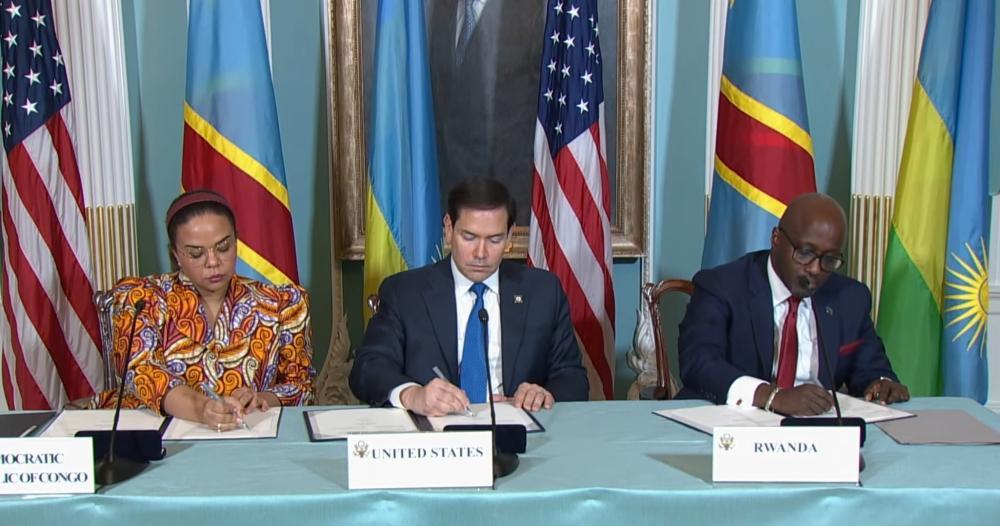Africa-Press – Rwanda. Next month’s anticipated agreement signing between Rwanda and the Democratic Republic of Congo (DR Congo) at the White House marks a critical juncture in the long and troubled path toward peace in the Great Lakes Region.
After years of violence, the moment offers a rare opportunity to turn the page. But such moments demand more than handshakes and headlines—they demand genuine political will.
The DR Congo’s track record in dealing with the M23 rebellion has been inconsistent and, at times, dangerously counterproductive. Despite participating in regional peace efforts, including the Luanda and Nairobi processes, the Kinshasa regime has spectacularly failed to honour its side of the peace plan. The result has been renewed hostilities, which has only led to more victory for the determined rebels at the expense of the Kinshasa regime.
While the government now engages in talks with M23 in Doha, Qatar, a parallel narrative is unfolding—one that raises serious questions about Kinshasa’s true intentions. Reports of the regime stocking up armaments and contractingforeign mercenaries, including the notorious American outfit Blackwater, paint a worrying picture. You cannot negotiate peace with one hand while preparing for war with the other.
This duplicity undermines the credibility of the DR Congo’s commitment to peace and destabilises the delicate progress made through diplomatic channels. The militarisation of the crisis, especially through foreign mercenary firms with questionable records, risks turning a regional challenge into a broader, more entrenched conflict.
The people of eastern Congo have suffered enough. So have the Congolese civilians and Rwandan communities who live along the shared border. Peace is the only viable path forward—and it must be pursued with honesty, restraint, and respect for agreements reached.
As the world turns its attention to the upcoming White House signing, Kinshasa must demonstrate good faith. That means halting its dangerous flirtation with armed escalation, fully committing to the terms of the peace plan, and choosing diplomacy over deception.
Rwanda has consistently stated its willingness to work toward a lasting solution. The international community, too, has rallied behind regional and international mechanisms for peace. The burden now falls on Kinshasa to prove it is not just going through the motions—but genuinely working to end the suffering of its people.
A peace accord is not a photo opportunity; it is a promise that must be kept.
Source: The New Times
For More News And Analysis About Rwanda Follow Africa-Press






